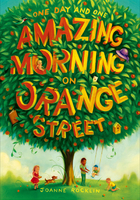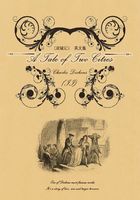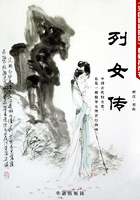Sitting in the back of his wardrobe was a box. It was hidden behind a pile of winter clothing the maid had stacked there the previous spring, layers of tissue paper separating sweaters and wool slacks. Alif maneuvered it free and set it on his bed. His throat spasmed; he waited. It spasmed again. He couldn't cry; women would descend on him and ask questions. He disciplined his body. When he was sure of himself, he lifted the lid of the box: inside was a folded cotton bed sheet. Unfolding it halfway, he saw a small stain, now more brown than red, shaped something like the Indian subcontinent.
The stain had appeared during a week when Alif's mother accompanied his father on one of his innumerable business trips. Alif had encouraged the maid to visit her relatives in a nearby emirate while his parents were away, insisting he could manage on his own. The maid was skeptical but needed only a little convincing to agree. Alif gave Intisar a key to the front gate and told her to dress in her plainest robe; if the neighbors saw her, they would assume she was Dina. When she arrived the first evening, Alif lifted her veil without speaking, struck dumb by the face he had imagined and reimagined for months. In an instant he forgot all his mental projections of Lebanese pop stars and Egyptian movie actresses. She could have no face but this face, with its mercurial dimple, mouth slightly too large, those elegant brows. He'd suspected she was beautiful-she spoke like a beautiful woman. But nothing had prepared him for the force of that beauty.
"What are you thinking?" she'd whispered.
"I can't think," he'd answered, and laughed.
With embarrassed smiles they signed a stock marriage contract Alif found on a Web site that catered to Gulf men seeking to cleanse the sins they planned to commit elsewhere. Though the paper eased his mind somewhat, it took him three nights to work up the courage to uncover more than her face. They were both awkward. Alif was bewildered by her body, so much of which remained hidden to him even when she was unclothed; she in turn seemed equal parts intrigued and appalled by his. Guided by instinct, they had created this stain. The blood was Intisar's, but Alif could not shake the feeling that something of his lay over it, an invisible mark of the ignorance he had shed. In the aftermath, he told her he loved her over and over again until she asked him to stop, frightened of the power she now possessed.
Alif bent and rummaged through a drawer in his file cabinet. Their contract lay in an unmarked folder near the back, carefully pressed between stiff manila folds. He took out the single printed page and ran his fingers over it, tracing the ballpoint indentation of Intisar's signature. His own was a secondary-school scribble. She had laughed to see his legal name, so ordinary, lacking the edgy brevity of his screen name, the only name she had ever called him. The name she would murmur in the faint grainy light of the street lamp that illuminated his room as they lay side by side, whispering through the empty hours before dawn.
Alif put the file back and closed the drawer.
He had discovered Intisar several months earlier, in a digital forum where unwholesome young men like himself heaped bile on the emir and his government from behind clever pseudonyms. Intisar intruded on their conversation like an elegant reproach, sometimes to defend the emir, sometimes to add new levels of complexity to their critique. Her knowledge was so broad, her Arabic so correct, that her lineage was quickly apparent. Alif had always believed that aristocrats avoided the Internet, assuming-correctly-that it was full of riffraff and social disease. Intisar intrigued him. He began to e-mail her quotations on liberty by Atatürk and John Adams; she countered with Plato. Alif was enchanted. He sent her money to buy a second mobile phone so they could talk without being discovered by her family, and for weeks they spoke every night, often for hours at a time.
When they decided to meet, in the very tea shop where she had so recently shattered him, Alif nearly lost his nerve. He hadn't spent time alone with any girl besides Dina since primary school. When he saw Intisar for the first time, he envied her the enfolding anonymity of her veil; he did not know if her hands shook as his did, or if her face was flushed, or if her feet, like his, refused to obey her. She had the upper hand. She could observe him, make up her mind about whether he was handsome, assess his tendency to wear all black and decide whether this offended her or not. He, on the other hand, could do nothing but fall in love with a face he had never seen.
Alif lifted the stained sheet out of its box and breathed in. It smelled of mothballs, having long since lost any trace of Intisar's perfume, or the aching, tender fragrance of their mingled limbs. It baffled him to think that a year ago he did not know her, and in another year it might be as though they had never met. The anger he felt in the Malay's tea shop was fading rapidly into shock. How long had she planned their perfunctory meeting? On what day, as he sat oblivious in front of his computer, had her engagement been performed? Had he touched her, this interloper? That thought was too much. Alif curled around the sheet with a howl, blood churning in his temples.
A frantic knock rattled out on his bedroom door. Before he could answer, his mother came into the room, clutching the trailing end of her scarf to her chest.
"Merciful God, makan, was it you who made that terrible noise? What's wrong?"
Alif bundled the sheet back into the box. "I'm fine," he said unsteadily. "Just a pain in my side."
"Do you want paracetamol? Soda water?"
"No, nothing-nothing." He attempted a nonchalant expression.
"All right." His mother looked him over once, lips pursed, before turning to leave. Alif straightened and took a few deep breaths. Taking out the sheet once more, he refolded it neatly, hiding the stain in its deepest layers. Then he rummaged in his desk for a pad of paper, on which he scribbled a note:
This belongs to you. You may need it.
He did not sign his name. He tucked the sheet and the note inside the box and taped it shut, wrapping it in a Saturday edition of Al Khalij he found folded up on his bookshelf. Then he tapped on the wall: p'~
* * *
It was ten minutes before Dina appeared on the roof. Alif set the box down beside him and dangled his shoelaces for the black-and-orange cat, which had appeared among the potted plants by some alchemy that did not involve stairs. He jerked his foot in the air and watched her bat at his dirty laces, feeling irrationally oppressed by Dina's tardy response to his summons. When she came out through the door of the stairwell, he was ready for a fight.
"Be careful with this one," said Dina, bending down to greet the cat. "All cats are half jinn, but I think she's three-quarters."
"Where have you been?" he demanded, tucking the box under his arm.
She sniffed. "Praying maghrib."
"God is great. I need a favor."
Dina walked to the edge of the roof and knelt to brush dust from the leaves of a dwarf banana plant teetering in a clay tub. The cat followed her, pressing its body against her leg with a rumbling purr.
"You were mean to me," Dina said without looking at him. "All I wanted to do was talk about your book."
Alif went to sit beside her. "I'm sorry," he said. "I'm a donkey. Forgive me. I need to do something important and I can't ask anyone else. Please, Dina-if I had a sister I'd ask her, but you're-"
"You have a sister. I danced at her wedding."
Alif laughed. "Half-sister. I've met her four times in my life. You know Baba's other family hates me. As far as Fatima is concerned I'm a dark little abd, not a brother."
Dina's eyes softened. "I shouldn't have brought her up. May God forgive them for the sins they have committed against you and your mother."
"Sins," Alif muttered, batting at a banana leaf. A plume of dust slid off into the air. "You called my mother a Hindu earlier."
Dina gasped, covering her face with her hands. "I forgot! I was angry-"
"Don't, don't do that. You'r e an immaculate saint. Don't torture yourself."
She put her palm on the ground, close to his knee. "You know my family has never questioned her conversion," she said. "We love her. She is like my aunt."
"You have an aunt. I've eaten her qatayyef."
Dina clucked her tongue. "You always tie my words in knots." She sat back on her heels and clasped her arms around her knees, looking less like a woman than an abstract impression of one, inky and creased. He remembered the day she had announced, at the age of twelve, that she intended to veil her face. Her mother's tears and her father's angry retorts carried easily through the common wall of the duplex. For an upper-class Old Quarter girl like Intisar to veil was one thing; her silken, beaded cocoon was a mark of rank, not religion. But Dina was imported labor-a shabby Alexandrian, expected to become the bare-faced, underpaid ornament to someone's office or nursery, perhaps even discreetly available to whomever was paying her salary. For her to declare herself sanctified, not by money but by God, looked like putting on airs. Even as a pimply fourteen-year-old, Alif had understood why her parents were so upset. A saint was not profitable.
"What's this favor?" Dina asked finally.
Alif set the box in front of her. "I need you to take this to a villa in the Old Quarter and give it to a girl who lives there." A twinge of regret rippled through him even as he said the words. When Intisar saw what he had sent her, she would think him disgusting. Perhaps that was what he wanted: the last word, a final scene more vulgar and melodramatic than the one she had orchestrated in the tea shop. He would remind her of what they had been to each other, and punish her for it.
"Old Quarter? Who do you know in the Old Quarter? It's all aristocracy."
"Her name is Intisar. Never mind how I know her. Seventeen Malik Farouk Street, across from a little maidan with a tile fountain in the center. It's very important that you put this in her hands-not a servant's, not a brother's. All right?"
Dina picked up the box and examined it. "I've never met this Intisar," she muttered. "She won't take a strange box from me without an explanation. There might be a bomb in here."
Alif's mouth jerked. She was not far wrong. "Intisar knows who you are," he said.
Dina scrutinized him from beneath her fringe of dark lashes. "You've gotten very odd. I'm not sure I want you talking about me to girls with fussy names from the Old Quarter."
"Don't worry about it. After this errand, we'll never mention her again."
Dina stood, shaking dust from her robe, and tucked the box under one arm. "I'll do it. But if you're asking me to commit a sin without my knowledge, it will be on your head."
Alif smiled bitterly. "My head is already heavy with sins. Such a little one as this will make no difference."
A line appeared between Dina's brows. "If that's true, I will make du'a for you," she said.
"Many thanks."
Alif watched her walk across the darkened roof and disappear into the stairwell. When the sound of her footsteps was no longer audible, he leaned his forehead against the rim of the banana plant pot and sobbed.
* * *
The next day, Alif did not leave the house. He took his laptop to the roof and meditated on a blinking cursor in a blank Komodo code editor, vaguely aware of the maid trudging to and from the clothesline and putting carpets out to air. The cat appeared again, strolling along the concrete balustrade that lined the roof. She paused to observe Alif with something like pity in her yellow eyes. In the late afternoon, Dina and her mother came up to shell peas. Seeing him-his bare feet propped up, his face bathed in the bluish light of the computer-they retreated to the opposite corner and whispered to each other.
Alif ignored them, intent on the coming of evening. He watched the sun flush as it sank into the desert. Entering its most sacred hour, the City began to shimmer in a haze of dust and smoke. Between the irregular rows of duplexes and apartment buildings, Alif could make out a fraction of the Old Quarter wall. Struck by a last volley of sunlight, it was lit to an astonishing hue: not pink, as it was vulgarly called, but salmon-gold, or a bridal shade of old Jaipuri silk. Provided with such spectacular footlights, the call to sunset prayer rose up from the great mosque of Al Basheera at the epicenter of the Old Quarter. It was quickly echoed by a hundred lesser muezzins, each more toneless than the last, in mosques spread across the haphazard neighborhoods outside the Wall. Alif listened only to that first perfect baritone before slipping on his headphones. The great muezzin's voice was like a reprimand: he had coveted what he should not.
When all the light was gone, Alif went inside. He washed, shaved, and accepted a plate of curried fish from the maid; after he had eaten, he went out into the street. He paused at the corner and thought of hailing a taxi, then thought better of it-the evening was pleasant; he would walk. A Punjabi neighbor salaamed him half-interestedly from across the street. Named for the cattle market to which it had once played host, Baqara District was all imported labor from India, Bangladesh, the Philippines, and the lesser Arab countries of North Africa. El 'abeed. It was one of a dozen neighborhoods that belonged to nothing, and reached out between the Old and New Quarters as if begging for alms.
Signs flickering to life in the dusk advertised bakers' goods and pharmacies in half a dozen languages. Alif passed them by quickly. He turned down an alleyway that smelled of ozone; air conditioners working hard in the apartments above dripped Freon on his head. At the end of the alley, he tapped on an unassuming door on the ground floor of a residential building. He heard shuffling. An eye appeared in the peephole.
"Who's that?" came a voice in the throes of puberty.
"Is Abdullah at home?" asked Alif.
The door opened, revealing a nose and a downy mustache.
"That's Alif," said a voice from farther inside. "You can let him in."
The door opened wider. Alif stepped past the suspicious youth into a large room, packed to the ceiling with boxes of computer parts. A welder's bench at the center was strewn with their guts: motherboards, optical drives, tiny translucent microprocessors still in beta. Abdullah straddled the free end of the bench with a laser pen in one hand, working on a circuit board.
"What brings you to Radio Sheikh?" he asked without looking up. "We haven't seen you in weeks. Thought you might have gotten pinched by the Hand."
"God prevent it," Alif said automatically.
"God is greatest. How are you, then?"
"Shit."
Abdullah looked up, wide eyes in a rabbit-toothed face. "Say 'forgive me,' brother. The last time I heard a man answer that question with anything but 'praise God,' his dick was melting off. Syphilis. I hope your excuse is just as good."
Alif sat down on the floor. "I need your advice," he said.
"I doubt that. But go on."
"I need to prevent someone from ever finding me online."
Abdullah snorted. "Oh, come on. You're better at this than anyone. Block all his usernames, filter his IP address so he can't get on your Web sites-" Alif was already shaking his head.
"No. Not an IP address, not a username-not a digital identity. A person."
Abdullah set the board and laser pen down on the bench.
"I'm tempted to say it's impossible," he said slowly. "You're talking about teaching a software program to recognize a single human personality irrespective of what computer or e-mail address or login he's using."
"Yes, that's what I'm talking about." Alif's eyes flickered. "And it's a she."
"A she! A she! So that's why you're shit." Abdullah laughed. "Brother Alif with girl trouble! You miserable hermit-I know for a fact you never leave your house. How was this accomplished?"
Alif felt his face get hot. Abdullah's face blurred in front of him. "Shut up," he said, voice shaking, "or I swear to God I'll knock those buck teeth down your throat."
Abdullah looked startled. "All right, all right. It's serious. I get it," he murmured. When Alif said nothing, he shifted uncomfortably on the bench. "Rajab!" he shouted at the youth lurking in the corner. "Be a good chaiwallah and fetch us some tea."
"Your mother's a chaiwallah," muttered the youth, slinking out the door. When the latch clicked, Abdullah turned back to Alif.
"Let's think about this," he said. "In theory everyone has a unique typing pattern-number of keystrokes per minute, time lapse between each stroke, that kind of thing. A keystroke logger, properly programmed, might be able to identify that pattern to within an acceptable margin of error."
Alif sulked for another minute before responding. "Maybe," he admitted at last. "But you'd need a huge amount of data input before a pattern could be detected."
"Perhaps, perhaps not. It depends on how unique one's typing pattern really is. This has never been studied."
"What if you went further," said Alif, getting up and pacing. "Cross-reference the typing pattern with grammar, syntax, spelling-"
"Ratio of language use. English to Arabic to Urdu, Hindi, Malay, whatever. It would be one hell of an undertaking, Alif. Even for you."
They settled into a meditative silence. The youth appeared again with glasses of tea steaming on a metal tray. Alif took one and rolled it between his hands, enjoying the heat against his skin.
"If it worked…" he said softly.
"If it worked and word got out, every intelligence agency on God's earth would come to hump your leg."
Alif shivered.
"Maybe it's not worth it, brother," said Abdullah, unfolding his large feet from beneath the bench and standing up. "It's just a bint, after all."
Alif looked at the eddies of dark leaf and undissolved sugar in his tea glass. His eyes clouded. "This is not just any bint," he said. "This is a philosopher-queen, a sultana…"
Abdullah shook his head, disgusted. "I never thought I would see this day. Look at you, you're practically sniveling."
"You don't understand."
"I do, in fact." Abdullah raised an eyebrow. "You have something the rest of us imported Rafiqs do not: a noble purpose. Don't waste it on the whims of your prick."
"I don't want a noble purpose. I want to be happy."
"And you think a woman will make you happy? Son, look in the mirror. A woman has made you miserable."
Alif drifted toward a pile of boxes against the wall. "How much do you want for this?" he asked, holding up an external hard drive. "I could use some more storage space."
Abdullah sighed. "Take it. God be with you."
* * *
In his room at home, Alif retrieved a packet of clove cigarettes from a drawer in his desk. He opened the window before lighting one, and leaned against the ledge, sending luxuriant trails of smoke into the night air. Dew lay on the jasmine in the courtyard below; its scent met the spicy overture of clove and blew back through the window. Alif took a long breath. Since childhood, he had imagined he could see the sea through this window, shimmering with reflected light beyond the maze of buildings. Now he knew the lights danced not on water, but in smog; nevertheless, the image soothed him. He looked down as the jasmine bushes shook: the black-and-orange cat was picking her way silently across the court. He called to her. She looked up at him, blinking saucer eyes, and made a small sound. Alif held out his hand. The cat leaped onto the window ledge in one effortless movement, purring, and caressed his hand with her cheek.
"Good little at'uta," said Alif, using the Egyptian diminutive Dina had bestowed upon her long ago. "Pretty at'uta." He flicked the end of his cigarette out the window and turned away, dusting his hands on his jeans. The cat settled down on the ledge with her feet tucked under her body. She regarded him through half-closed eyes.
"You can stay there," Alif said, sitting down at his desk, "but you can't come in. The maid's a Shafa'i and cat hair makes her ritually impure."
The cat blinked agreeably. Alif ran one finger across the wireless mouse pad next to his computer and watched the screen crackle to life. There were messages in his inbox: confirmation for a wire transfer of 200 dirhams from a client; an introduction to a Syrian activist who was interested in his services. A Russian gray hat with whom Alif played virtual chess had made a move against his remaining bishop. After blocking the Russian's advance with one of his pawns, Alif opened a new project file. He deliberated for a few moments.
"Intisar," he said to the cat. "Rastini. Sar inti."
The cat opened and closed one eye.
"Tin Sari," said Alif, typing the words as he spoke. "Yes, that's it. I was thinking in the wrong language. A veil of tin for a wayward princess."
It took him most of the night to modify his existing keystroke logger program with a set of genetic algorithms that might-he hoped-be used to identify basic elements of a typing pattern. He rose only to sneak into the kitchen and brew a kanaka of Turkish coffee, adding cardamom pods he crushed against the granite countertop with the back of a spoon. When he returned to his room, the cat had disappeared from the window ledge.
"They all leave," he muttered. "Even the feline ones."
He pulled up Intisar's computer from a drop-down menu. The first time he worked on her machine he'd enabled remote access, allowing Hollywood, his custom-built hypervisor, to track her usage statistics. She never discovered him. Once in a while he meddled benevolently, clearing the malware her commercial antivirus software had missed, running his own defrag programs, deleting old temp files-things the ordinary civilian would either forget to do or never learn properly at all. Whenever there was an increase in Internet policing in one of his client's countries, it was common for him to go without sleep and speech for days; during such periods Intisar often accused him of neglect. It hurt him, yet he never told her about these small acts of affection. She did not know that a copy of her incomplete thesis sat behind one of his firewalls, ensuring her words would survive any event short of the apocalypse. These were the only gestures that made sense to him. So much of what he felt did not translate.
He slipped into her machine and created a node for Tin Sari v1.0, connecting it to a botnet of his clients' computers. The botnet would process the incoming data remotely, sending results to Alif via Hollywood. Alif felt a small pang of guilt for using his clients' machines without asking, and for such selfish reasons. But most of his clients wouldn't notice an extra program running discreetly in the background as they worked, and those who would had known Alif long enough not to ask questions. As soon as Tin Sari started transmitting data, he could begin to refine the algorithms, compensating for errors and adding new parameters. It would take time and patience, but if Abdullah was right, the end result would be a digital portrait of Intisar. Alif could instruct Hollywood to filter any Internet user who fit her specs, making them invisible to each other. He would grant her request: she would never see his name again.
"A hijab," Alif said softly. "I am hanging a curtain between us. Dina would say it is not fitting for us to look at each other." Dina would say it, but he would not-his own motives were ridiculous, and he could not speak them. By hiding from Intisar so completely, she could not return to him even if she wanted to, and he was spared the humiliation of knowing she would never try.
Alif blinked as bright spots flickered at the edge of his -vision-he had been staring at the computer for too long. His head hurt. Outside, the color of the sky was shifting; soon the muezzins would sound the call to dawn prayer. He shut off his monitor and pushed back from the desk. Without undressing he lay down in bed, overtaken by a sudden rush of fatigue.















